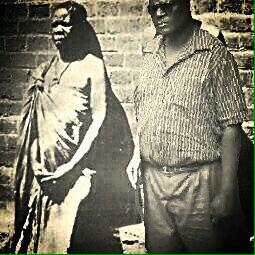
Spirit mediums are an, integral part of Zimbabwe’s belief systems and they generally command respect from the people. The recognition of spirit mediums is bolstered by a strong belief that they are custodians of the spirits of the departed.
They wield immense influence on most issues that require spiritual interventions.
Spirit mediums are not only revered, but also feared, as they can prescribe ghastly rituals as atonement or as fitting recompense for any transgression against the spirits. They act on behalf of spirits to punish, reward, rebuke, guide, destroy, enrich or impoverish the living. They can also pave easy paths for otherwise arduous and perilous undertakings.
During our struggle for independence, spirit mediums played a pivotal role geared towards preparing fighters for battle. Guerrillas consulted them for divination and for advice on waging a swift war. The fighters cultivated strong ties that were underpinned by dependence on the mediums’ ability to offer protection from the enemy. Some fighters actually trusted spiritual divination more than the munitions of war.
Mbuya Nehanda is by far the most notable spirit medium of modern times. Even though long departed from the realms of the living, she imposed immense influence on freedom fighters. Nehanda lived at a time Zimbabwe was being aggressively taken over by whites settlers sent in by the British a South Africa Company. Riled by the advent of colonisation, Nehanda inspired the First Chimurenga. Sadly she did not live to see the results of her efforts as she was captured and cruelly executed.

Nehanda’s death was by no means the end of the road to freedom, but it was a strategic detour by the spirits. After her physical death, she continued to inspire people into fighting the colonial system using her spiritual prowess. She became the spiritual hub of the Second Chimurenga and her name was propelled beyond heroine status. Her wishes for a free Zimbabwe were finally rewarded in 1980.
Many people wonder if Nehanda really enjoys being associated with what we have become since winning the Second Chimurenga. What would she say if she had to come back to today’s Zimbabwe? The magnitude of street vending would shock her. She would realise that there were no benevolent neighbours or charitable strangers to offer her free food. She would realise that she requires American Dollars instead of ndarama (beads) to purchase provisions.
- Chamisa under fire over US$120K donation
- Mavhunga puts DeMbare into Chibuku quarterfinals
- Pension funds bet on Cabora Bassa oilfields
- Councils defy govt fire tender directive
Keep Reading
Nehanda will view the proliferation of the US dollar as a travesty. She will be saddened that while she had spiritually guiding the struggle for decolonisation, some earthlings acquiescing to re-colonisation by Americans via their dollar. She would recall the precursor to colonisation when hordes of innocuous looking missionaries and hunters flooded the country ahead of the Pioneer Column. She will cringe in disgust at the prospects of paying for a pint of bottled water; a free resource.
She will question where humanity is going to next.
Nehanda’s spirits will be temporarily uplifted by the opulence she might come across in low density suburbs. Mount Pleasant, Gunhill, Borrowdale Brooke and other similar entities will make her doubt her decision to initiate the fight against colonialism in 1896. She would wonder what would have become of the country if she had defeated the imperialists then. Would such marvellous vestiges of rogue colonialism and rabid capitalism ever have been a possibility in Zimbabwe? Any spirit medium will whine with envy on seeing the plush, lush and luxurious environs of the rich and famous.
The tranquillity and serenity of the rich men’s areas would be a dawn of new perspectives on people enjoying the fruits of freedom; “matunda ya Uhuru”, until she goes where real people live. She would not be impressed as she strolls through Makokoba, Mbare, the smelly parts of Dulibadzimu and the unsightly parts of Dingumuzi. She would blame the spiritual world for catching a nap while people endure squalor and abject poverty.
Nehanda will not understand how people can live in houses that look like ancient catacombs. She will not make sense of people existing side by side with sewer pipes spewing smelly excrement, houses teaming with rats, cockroaches and bed bugs and a general environment punctuated with filth and trash as if it is an experimental culture to breed vermin. She will ask why so many people should live in tiny hovels in a land endowed with so much.
Perhaps Nehanda would be soothed by the countryside. Her obvious choice would be the Save River, where the mane-less lions are fabled to quench their thirst (Mhondoro dzinonwa kuna Save). She will scream on seeing the giant river flowing with sand instead of water. The icon will utter the phrase, “My God, what have we done?” just like the Americans remarked after dropping an atomic bomb on Hiroshima in 1945. Nehanda will be saddened by the results of poor soil management techniques.
She will weep!
Nehanda will not want to see more. She will just ask the spirits to take her back to their ranks where life is not an on-going struggle.
lMasola waDabudabu writes in his personal capacity.










